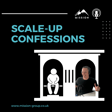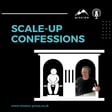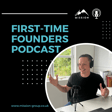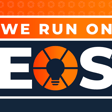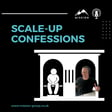
How to scale a b2b services business
Tyrone Croome-Carroll is a 3-time COO and accomplished people-centric leader, currently with Cadence (the leading language solutions provider to the global investment community).
In this episode of the First-time Founders Podcast, Tyrone shares what he learned leading multiple B2B information services businesses and explains why its important to build systems to support high performance teams in rapidly scaling environments.
Interested viewers can reach Tyrone via https://www.linkedin.com/in/tyronecc/ and Rob (https://www.linkedin.com/in/robertliddiard/) at Rob@mission-group.co.uk (or to book some free time with Rob, visit https://www.eosworldwide.com/rob-liddiard). Alternatively, if you’d prefer Rob to send you a free copy of Traction (the book by Gino Wickman which explains The Entrepreneurial Operating System) just complete the form here: https://www.eosworldwide.com/traction-giveaway?implementer_email=rob.liddiard@eosworldwide.com
